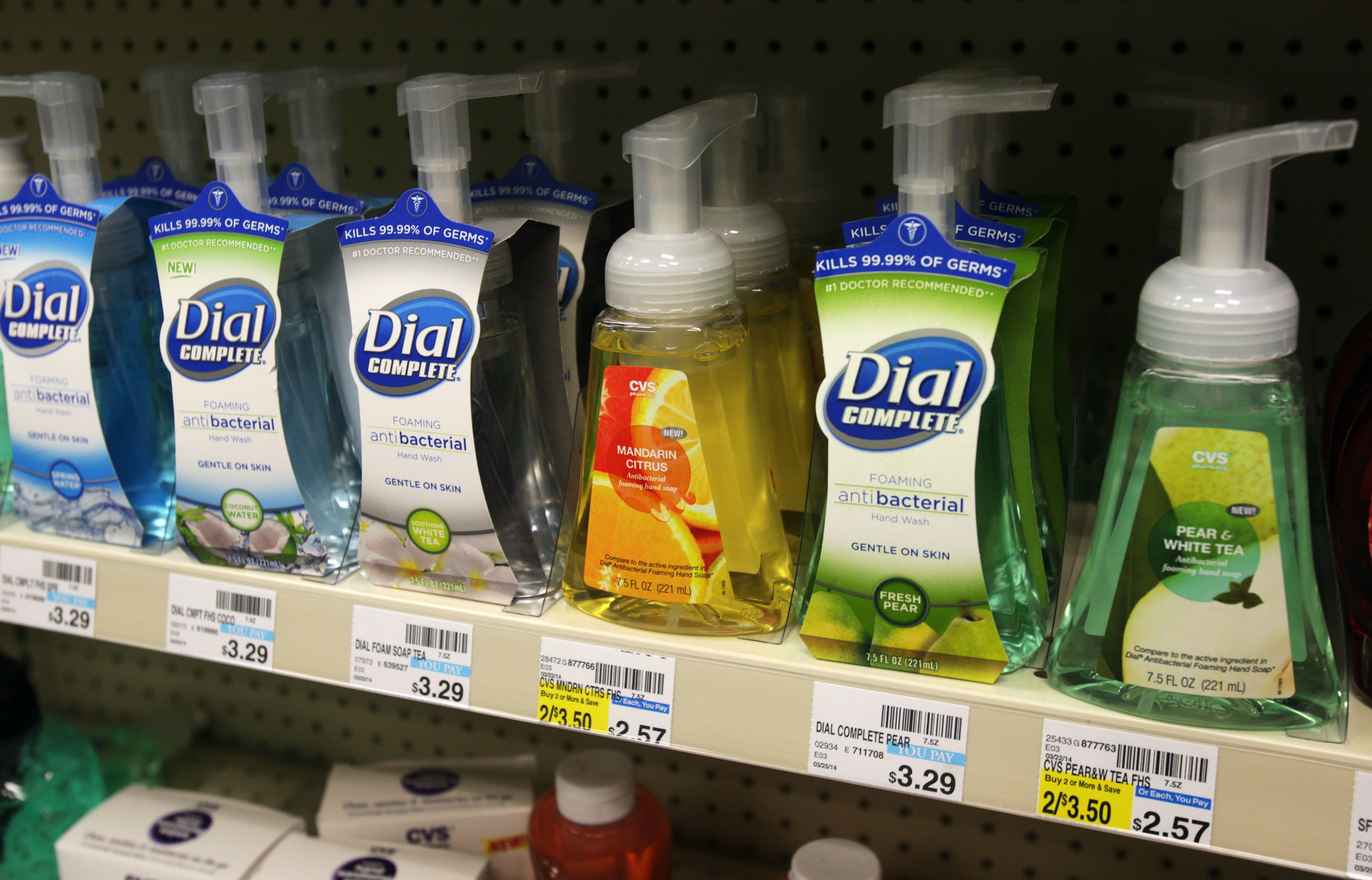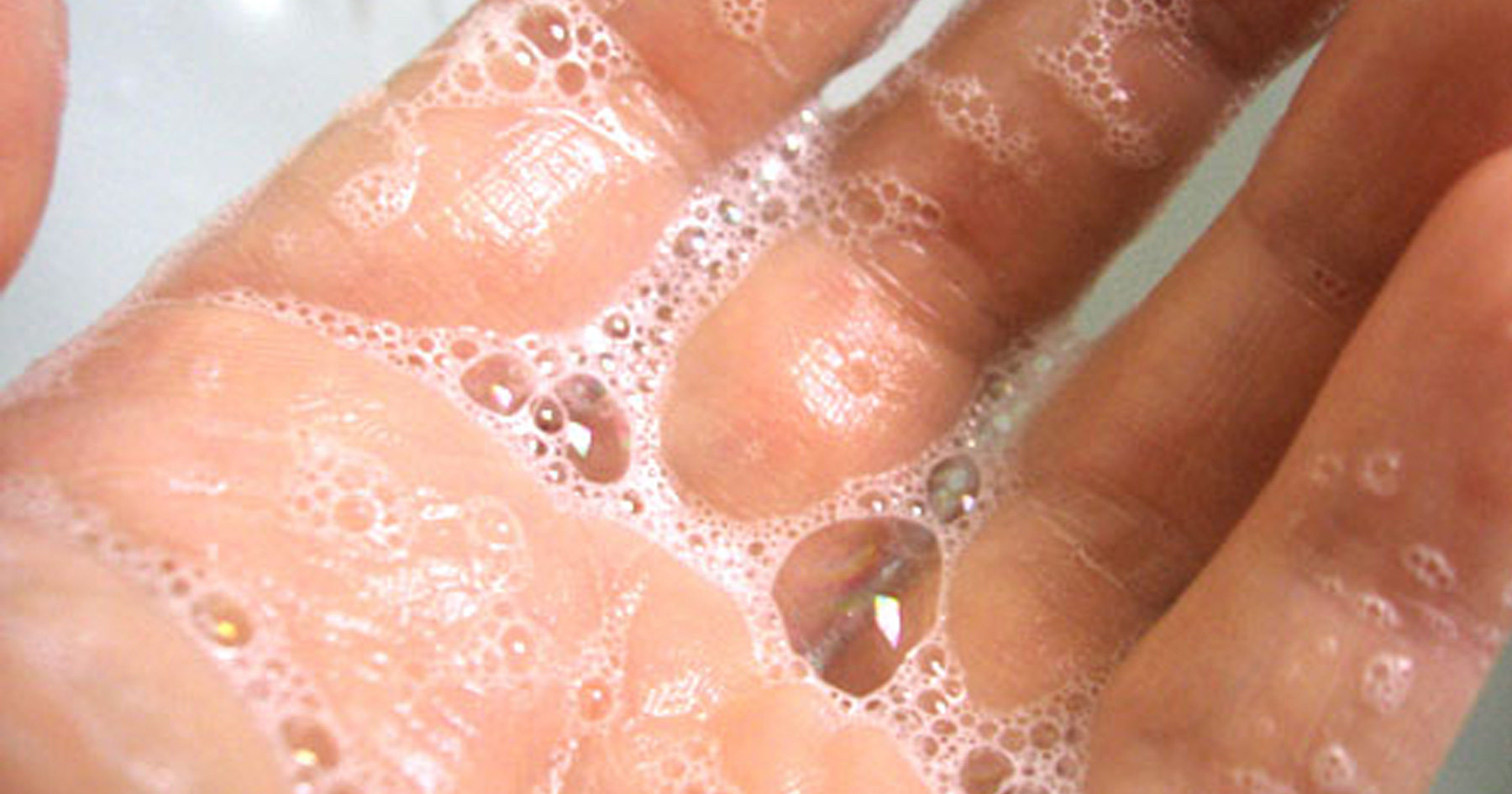The FDA Bans Antibacterial Soaps

By:
The Food and Drug Administration ruled Friday to pull 19 ingredients found in antibacterial soaps from the market.
The ban follows a 2013 FDA query on 22 antibacterial ingredients, and it will take effect by September 6 of next year, Lifehacker reports.
“Consumers may think antibacterial washes are more effective at preventing the spread of germs, but we have no scientific evidence that they are any better than plain soap and water,” Janet Woodcock, director of the FDA’s Center for Drug Evaluation and Research (CDER), said in a statement, reported by NBC News. “In fact, some data suggests that antibacterial ingredients may do more harm than good over the long-term.”
 AP Photo/Jim Mone - apimages.com
AP Photo/Jim Mone - apimages.com
In recent years, a good deal of scientific evidence has accumulated that supports the FDA's decision.
Included in the ban is the chemical triclosan, which is present in 93 percent of "antibacterial" and "antimicrobial" soaps, NBC News reports. Research has suggested that triclosan actually makes germs more resistant to antibiotics by eliminating helpful bacteria along with threatening strains.
 Flickr/desiitaly - flic.kr
Flickr/desiitaly - flic.kr
"Triclosan easily enters bodies by ingestion (think toothpaste) or skin absorption," Ars Technica explains. "It’s commonly found in people’s urine, blood, breast milk, and even their snot."
A 2014 University of Michigan study tested 90 adults found that 41 percent of them had triclosan in their nasal discharge. 'Snot good: the antimicrobial boogers doubled people's chances of getting infected with Staphylococcus aureus bacteria, which causes Staph infections, the study reports.
The FDA's ruling may also have a positive environmental impact.
A U.S. Geological Survey reported in May identified triclosan in almost 58 percent of freshwater streams, Science Bulletin reports. This is concerning for several reasons: the chemical disrupts hormones in animals, is toxic to algae, and researchers worry it could contaminate food consumed by humans.
Texas A&M International University associate professor of biology and chemistry Monica Mendez investigated triclosan-contaminated water and came to disturbing conclusions.
Though Mendez's team reported that the triclosan levels they detected in tomato and onion plants were safe for human consumption, they also discovered that it didn't ever completely disappear from soil.
From Science Bulletin:
"This contributes to a second problem. As triclosan breaks down, it can turn into other compounds that may be even more harmful. The breakdown of triclosan produces more effective hormone disruptors.
"'It’s not just triclosan that we’re interested in,' says Mendez, 'We also want to understand the possible products as degradation occurs. There’s still a lot of research that needs to be done.'
"Mendez is also concerned about how triclosan affects the bacteria that support plant growth in the soil. Triclosan targets all bacteria, not just disease-causing bacteria. Soils with healthy and diverse bacteria tend to be better for plants. However, triclosan can harm these microbial communities."
The FDA will decide on the last three antibacterial ingredients — benzalkonium chloride, benzethonium chloride, and chloroxylenol — next year, Lifehacker reports. The FDA is separately reviewing alcohol based hand sanitizers and wipes, which were not included in Friday's recall. The ban also does not apply to antiseptic products used by doctors.
In the meantime, the FDA recommends going the old fashioned route: washing your hands with plain soap and water.
